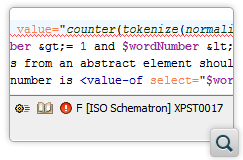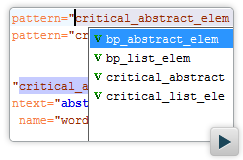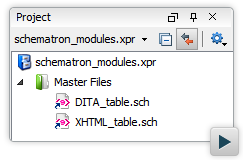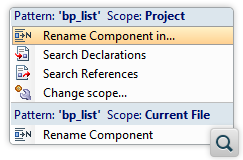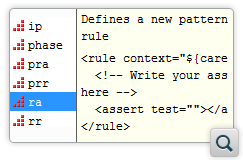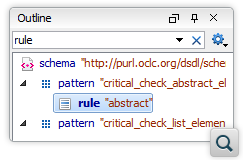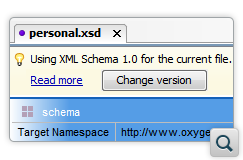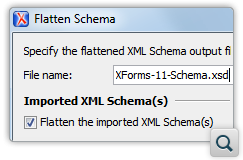2025
26.1Version 26.1 - March 25, 2024
2024
26.0Version 26.0 - October 11, 2023
- 25.1
Version 25.1 - March 16, 2023
2023
25.0Version 25.0 - October 13, 2022
- 24.1
Version 24.1 - March 7, 2022
2022
24.0Version 24.1 - March 7, 2022
Version 24.0 - October 18, 2021- 23.1
Version 23.1 - March 4, 2021
2021
23.0Version 23.1 - March 4, 2021
Version 23.0 - November 19, 2020- 22.1
Version 22.1 - May 19, 2020
- 22.0
Version 22.1 - May 19, 2020
Version 22.0 - February 12, 2020 2020
21.1Version 21.1 - May 23, 2019
- 21.0
Version 21.1 - May 23, 2019
Version 21.0 - February 22, 2019 2019
20.1Version 20.1 - June 15, 2018
- 20.0
Version 20.1 - June 15, 2018
Version 20.0 - March 16, 2018 2018
- 19.0
Version 19.1 - September 29, 2017
Version 19.0 - April 5, 2017 2017
- 18.0
Version 18.1 - October 18, 2016
Version 18.0 - April 21, 2016 2016
- 17.0
Version 17.1 - October 20, 2015
Version 17.0 - May 5, 2015 2015
- 16.0
Version 16.1 - October 7, 2014
Version 16.0 - May 20, 2014 2014
- 15.0
Version 15.2 - January 22, 2014
Version 15.1 - October 7, 2013
Version 15.0 - June 7, 2013 2013
- 14.0
Version 14.2 - February 13, 2013
Version 14.1 - October 19, 2012
Version 14.0 - June 27, 2012 2012
- 13.0
Version 13.2 - January 12, 2012
Version 13.1 - October 26, 2011
Version 13.0 - August 29, 2011
Oxygen XML Developer 15.2
Version 15.2 of Oxygen XML Developer improves the support for developing Schematron and XML Schema schemas, adds support for working with modules to the Eclipse plugin and keeps updates many components to their latest versions.
There are changes in:
Editing Schematron Schemas
Improved Schematron Validation and Accurate Error Locations
Validating Schematron schemas is a complex process that involves multiple
steps, thus it is not easy to trace errors that can appear at later stages in this complex
process back to the initial schema files. Oxygen improved the error checking by
validating the entire schema hierarchy, resolving included schemas and it is the only XML
editor that can locate the errors from any processing stage, including errors in the XPath
expressions, highlighting them in the editing area.
The Content Completion Assistant Proposes Components from the Schema Hierarchy
The Content Completion Assistant proposes Schematron components in accordance
with the editing context, collected from the entire schema hierarchy. For example, when
you edit the active pattern of a phase, the Content Completion Assistant displays all the
defined patterns, even if these are defined in an included schema.
Editing Schematron Modules in Master Files Context
The Master Files support allows Oxygen to provide better support when
working with modules that are referenced from the defined Master Files. This support
includes not only Schematron schemas, Oxygen allowing to easily determine the Master
Files (top level Schematron files) from a set of files. Once defined the Schematron Master
Files allow you to edit a Schematron module in context, improves validation, content
completion assistance, provides the scope for search and refactoring actions, updating
references of moved or renamed resources.
Hierarchy/Dependencies View
The relationships between Schematron modules can be viewed and analyzed with
the help of the Hierarchy/Dependencies view.
Renaming or Moving a Schematron Module Updates Its References
When you rename or move a Schematron resource, Oxygen automatically updates
the references to that module. The changes about to be made can be reviewed in the Preview
dialog box.
Search and Refactoring Actions for Schematron Components
Oxygen allows you to search and modify the names of Schematron components
such as patterns, phases or diagnostics, the change being applied in all places where
those components are referenced. When the cursor is placed within a Schematron component,
that component declaration and its references are highlighted in the editor and location
markers are displayed in the overview ruler at the right of the editor. You can navigate
to the declaration of a component using the CTRL/CMD + Click navigation feature - holding
the CTRL (CMD on Mac) the component names become links that can be clicked to navigate to
the components definitions.
Handle Subject Attribute
The default location for an error reported when a Schematron check fails is the
context of the Schematron rule that contains that check. However, sometimes that context
is different than the actual error location and Schematron provides a way to point to the
actual location of the issue, through the subject attribute that
specifies an XPath relative to the context node. Oxygen takes into account the
subject attribute available on Schematron assert or
report elements when the location of the Schematron message is
computed.
Custom Schematron Code Templates
Code templates or abbreviations allow you to type a short name and expand that
to a code fragment. Schematron specific code templates covering the most frequent code
fragments were added so you can take immediate advantage of this functionality to quickly
enter Schematron constructs. The templates are displayed by the Content Completion
Assistant where you can see the list of specific Schematron code templates, filter them by
typing a prefix and select them to get the expanded code fragments.
Default Validation Scenarios for XML Schema or Relax NG with Embedded Schematron Rules
When you work with XML Schema or Relax NG documents that have embedded
Schematron rules, Oxygen provides two built-in validation scenarios: 'Validate
XML Schema with embedded Schematron' for XML schema, and 'Validate
Relax NG with embedded Schematron' for Relax NG. You can use one of these
scenarios to validate also the embedded Schematron rules.
Custom Icons for Schematron Outline
The Outline view helps you find Schematron components easily by decorating them
with distinct icons.
XML Schema
Control the XML Schema Version at XML Schema Document Level
Now that XML Schema 1.1 is a W3C Recommendation, people started to use both XML
Schema version 1.0 and XML Schema version 1.1. While Oxygen provides a default XML
Schema version as an option it is useful to be able to control also what version will be
used for each XML Schema file. Oxygen 15.2 supports the use of
vc:minVersion and vc:maxVersion attributes on the
schema root element, allowing you to set the XML Schema version for that XML Schema
document. New document templates are also provided so you can easily create XML Schema 1.0
or XML Schema 1.1 documents.
read more
read more
Flatten XML Schema
The Flatten Schema operation allows you to flatten an entire hierarchy of XML
schemas. Starting with the main XML schema, Oxygen calculates the schema hierarchy by
processing the "xs:include" and "xs:import" statements and then it generates one schema
file for each different namespace.
Text Mode
CMS Integration and Connectivity
MarkLogic Support
MarkLogic 7
Oxygen offers support for MarkLogic 7.
Eclipse Plugin
Master Files Support in the Oxygen Eclipse Plugin
To deal with difficult tasks developers split complex files into multiple
modules. Sometimes these modules taken as standalone files are invalid and to be able to
work with them you need to take into account the entry point, the Master File that
includes the modules. Oxygen allows defining the entry points or Master Files and
automatically provides support for editing modules referenced from those Master Files.
Starting with version 15.2, the Oxygen Eclipse plugin offers full support to work with
modular XML, XSLT, XML Schema, WSDL, Schematron and Relax NG files, providing module
editing, validation, search and refactoring actions, modules connections overview, etc.,
(all of these in the context of the defined Master Files).
Syncro SVN Client
Component Updates
Other
Extended API
A detailed list of all changes to the Java API can be found here.

